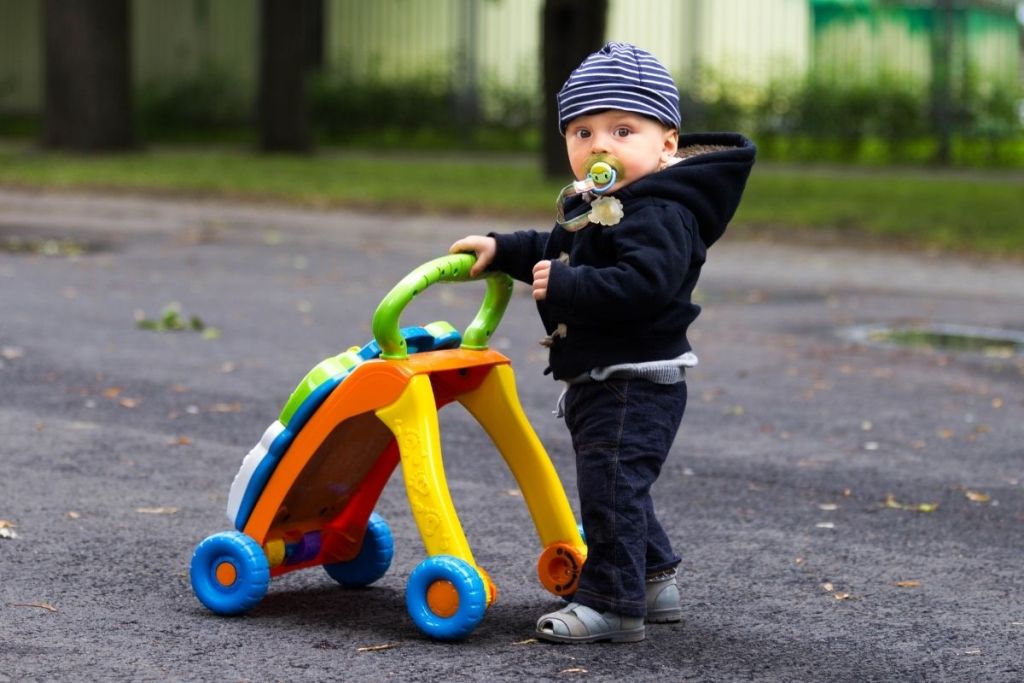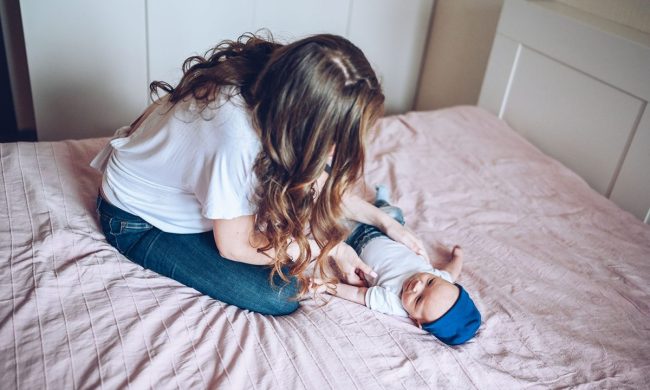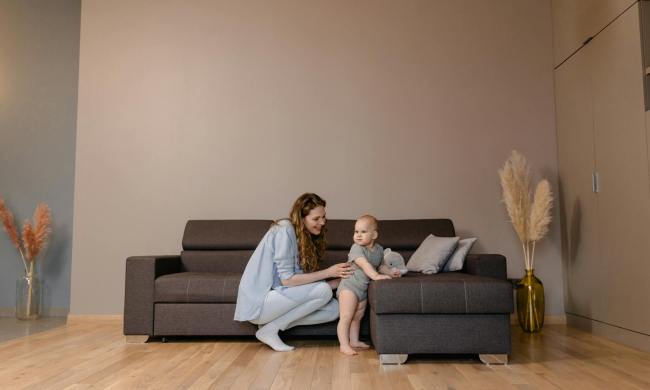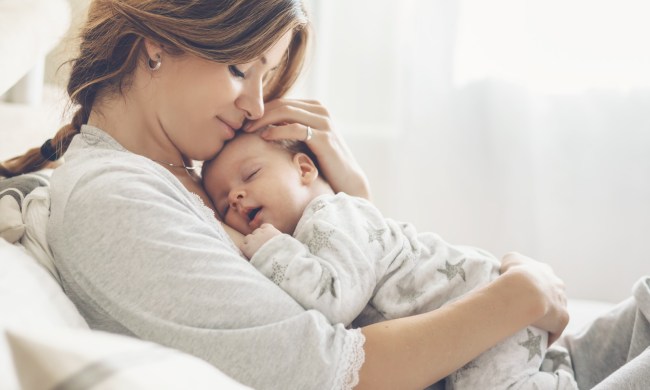Baby walkers used to be a popular gift and toy, but their popularity has shifted over the years and studies have found they can be quite unsafe. This can be disappointing for some parents looking to give their little ones a bit of independence while also allowing them to be hands free.
Even though you may have used a baby walker as a child yourself, in this day and age, there is quite a bit of information about just how hazardous baby walkers can be. If you’re considering getting a baby walker, adding one to your registry, or if you already have one in your home, keep reading before you pop your toddler in.
Are baby walkers safe?
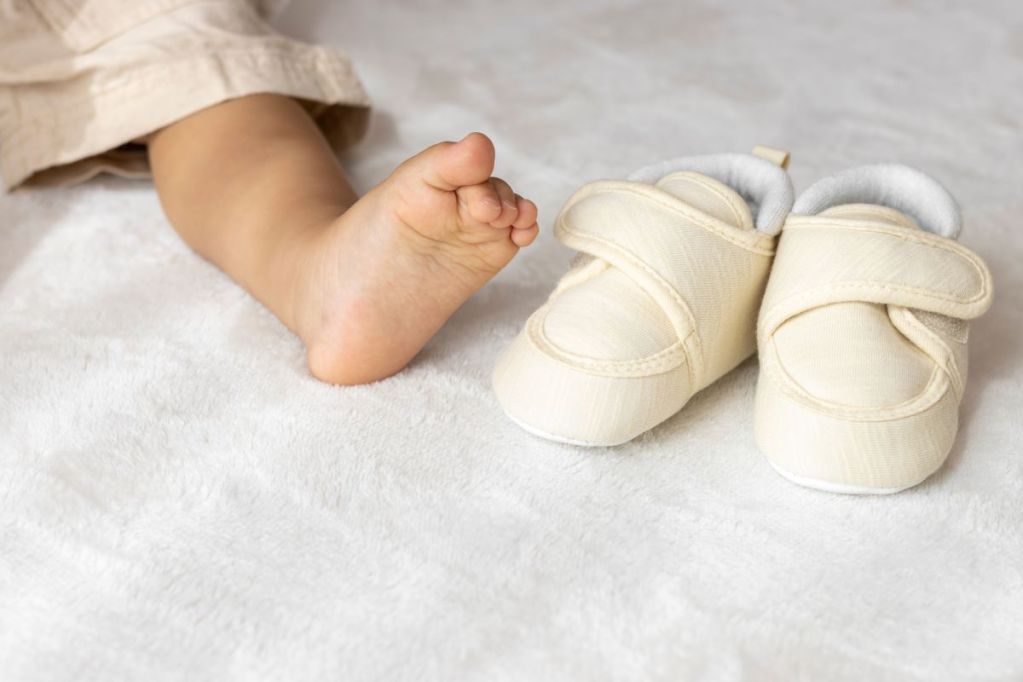
The short answer to whether baby walkers are safe is no, they’re not. The American Academy of Pediatrics has called for a ban on the manufacture and sale of baby walkers with wheels, saying that baby walkers send thousands of babies to the hospital every year. While baby walkers have not been banned in the United States, Canada has banned the manufacturing, importing, advertising, or selling of baby walkers since 2004. The National Library of Medicine also has warnings about baby walkers.
The term “baby walker” refers to two types of walkers. The first type is where a baby or toddler learning to walk holds on to the walker’s handle and pushes it. The other is a younger baby sitting inside with wheels. Both types of baby walkers are considered to be unsafe.
So, what is it that makes baby walkers dangerous?
Baby walkers can cause children to fall and sustain serious injuries
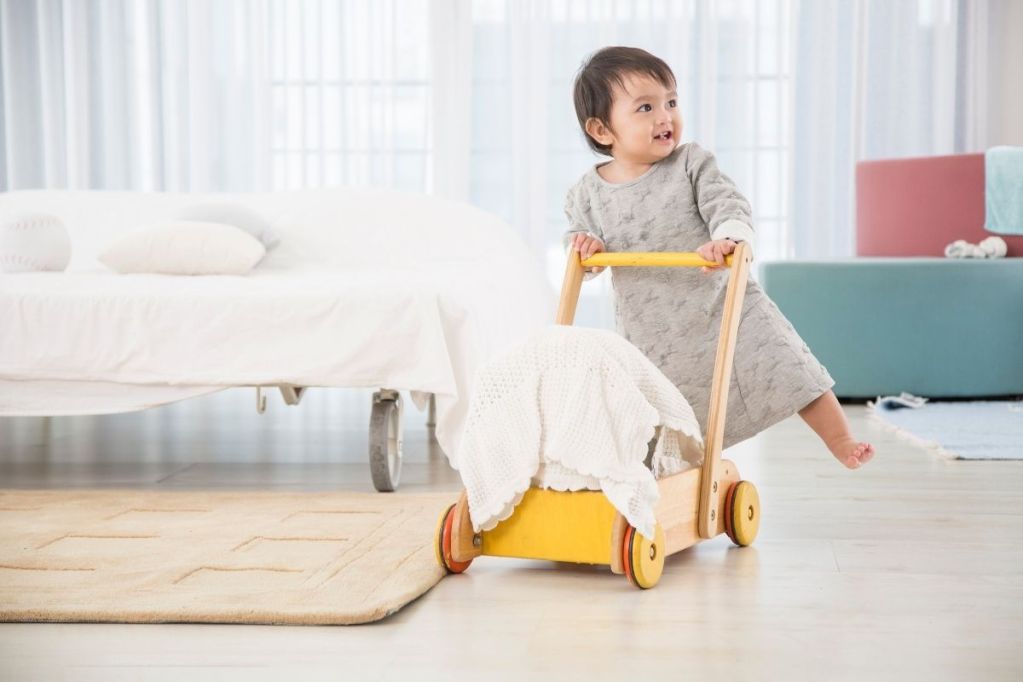
When young children aren’t ready to walk and are being artificially helped by a device instead of a caretaker’s hands, the walker can slip when they push on the walker. This causes them to fall face-first onto the handle or the floor. If another object is around like the corner of a table, your baby or toddler’s head can strike it if the baby walker slides.
Baby walkers that have the baby sitting inside the walker can roll right down the stairs. Your child can use the walker as a battering ram to knock down a baby gate. The AAP says that rolling down the stairs is the leading cause of injury from baby walkers and can lead to broken bones, head trauma, or both.
Baby walkers can cause children to go too fast
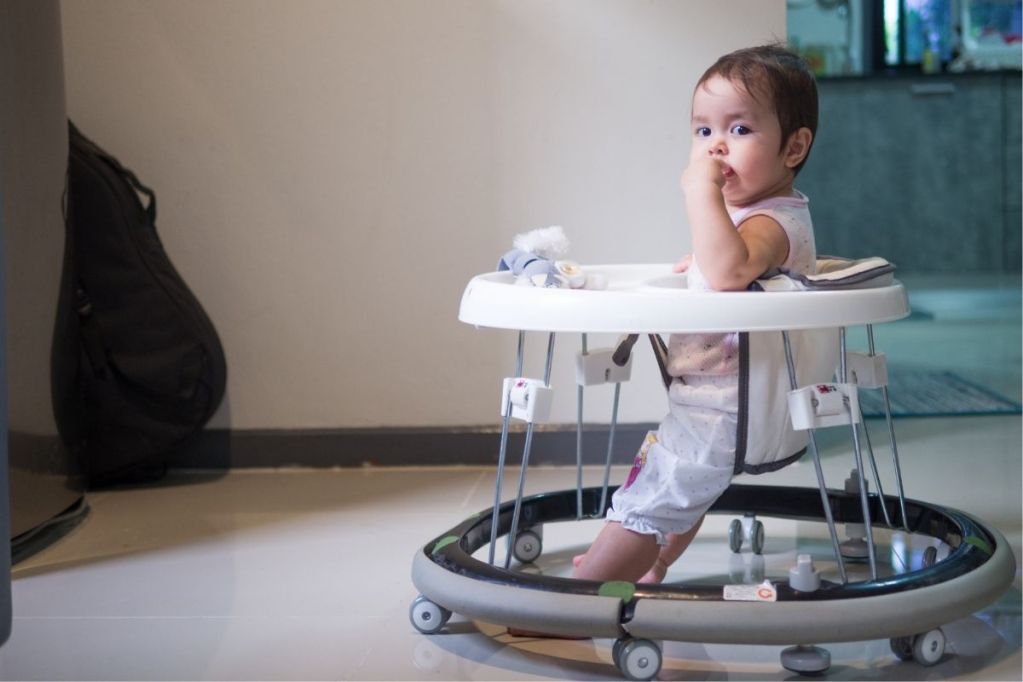
Most baby walker injuries occur when a parent is watching, according to the AAP. It can be physically impossible for a parent or caregiver to react quickly enough because once a fall or other dangerous situation is happening, it’s already too late.
A baby in a walker can move three feet in one second. This makes baby walkers unsafe even when supervised. At those speeds, babies can go right down the stairs, over a balcony, out a door, or into a piece of furniture that could topple over.
Baby walkers can get children to dangerous spots
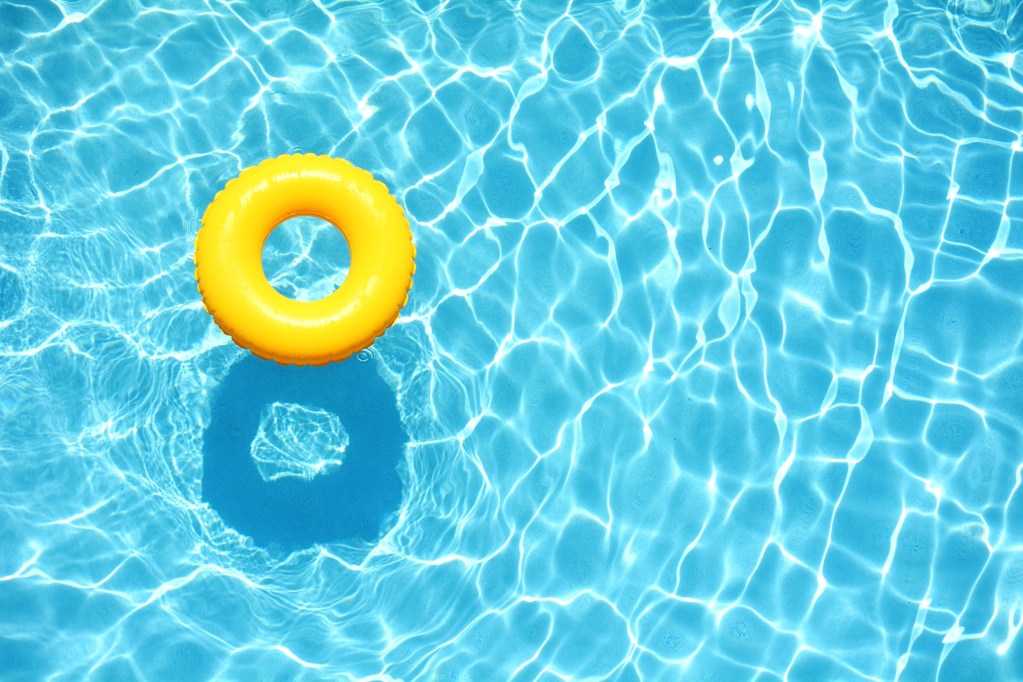
With baby walkers, kids can reach places they wouldn’t be able to otherwise. They could get stuck in a corner, reach a pool or bathtub, or even near a fireplace or stove. All these incidents have happened and could be avoided by making sure you don’t use baby walkers with your kiddos.
Baby walkers place children at risk for accidents

If babies are sitting in a walker, they are higher up than they would in their pre-walking stage. This means they can now grasp objects and places that otherwise wouldn’t be accessible. This includes dangerous substances and objects like pills, hot drinks, and breakable things like glass on tables.
Babies could also pull tablecloths off surfaces, bringing everything on the table down on them. They may be able to reach hot stoves with pot handles sticking out, hot radiators, and space heaters, too.
Baby walkers don’t help children learn to walk

Parents may think baby walkers help kids to walk. The reality is baby walkers actually interfere with babies and toddlers learning to walk. The AAP says there is zero value to baby walkers and that baby walkers delay when a child begins to walk.
Baby walkers can decrease the desire to walk on their own because babies prefer the walker to do the work for them. The bottom line is that baby walkers hurt the development of babies’ muscles and motivation.
What to use in place of baby walkers
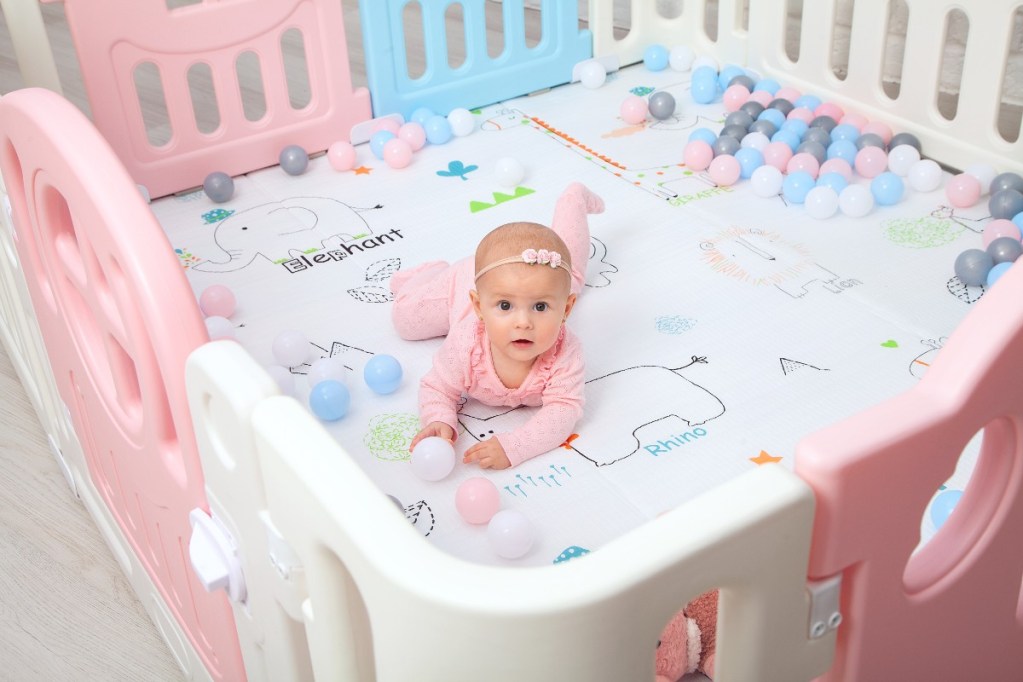
Parents like the idea of a baby walker because it keeps inquisitive toddlers contained, but also lets them be mobile. Of course, this opens up a whole list of safety concerns as well. Now that you know baby walkers aren’t safe for toddlers and don’t provide any benefits when learning to walk, what can parents use instead?
Playpen or play yard
Using a playpen or play yard isn’t confining your little one. It’s putting infants and toddlers in a safe spot where they can play with their toys. Playpens and play yards do allow infants and toddlers space to crawl and stand up without putting them in danger like a walker.
Highchair
Another great spot to let toddlers be busy exploring and playing is in their highchairs. Highchairs aren’t just for eating. A highchair is a safe place where kids can play while mom or dad are prepping meals or working.
Activity centers
An activity center is like a baby walker without wheels. Infants and toddlers can sit or stand while playing with their stationary activity center. These activity centers come in all different types and are a safe option for kids that encourage gross and fine motor development.
When should your baby start to walk?
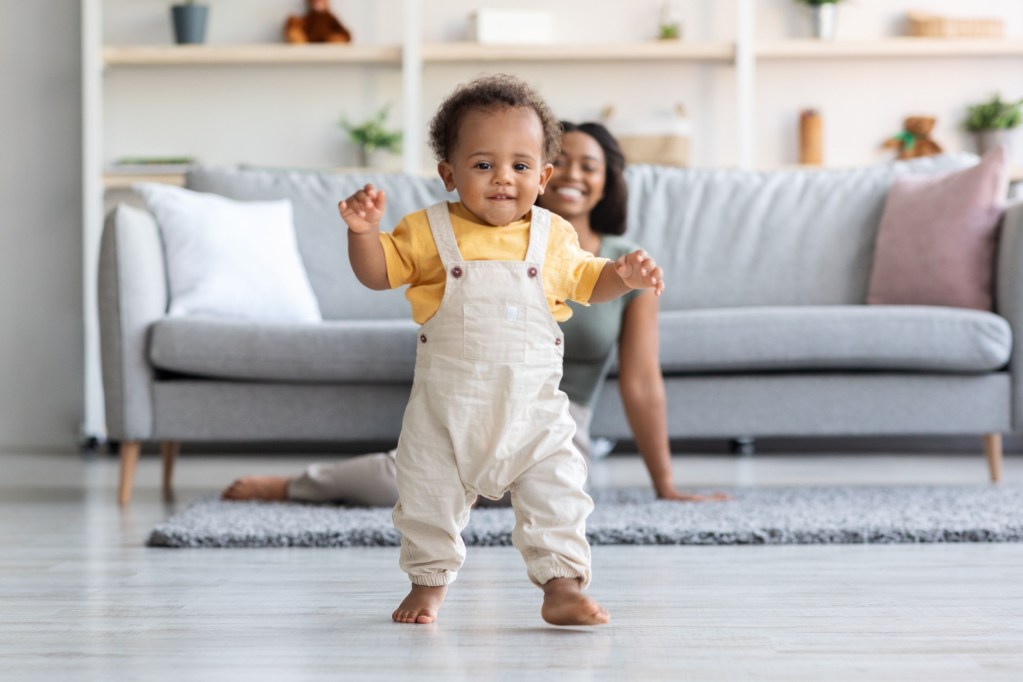
It can be tempting for parents to use baby walkers to encourage their little ones to take their first steps, but we know that baby walkers can inhibit walking. Although all babies are different, most babies will start walking between the ages of 10 and 18 months old.
The skills needed to learn to walk, including balance, coordination, and being able to stand on their own and support their body weight as they shift from one leg to another, are all skills that will aid them in learning to walk. In addition to being unsafe, using a baby walker can stunt these skills and delay when your baby will take their first steps.
A final word on baby walkers

Now that you know baby walkers aren’t safe, take it off your registry list. If you already have a baby walker, throw it away. Don’t donate it if you have one. You should also ensure there aren’t any baby walkers at other places your child is cared for, like grandma’s house or the daycare center.
Use a playpen, highchair, or stationary activity center if you are looking for a convenient and safe place to contain your crawling baby. When it’s time to help your baby walk with assistance, hold out your hands to guide them along.
